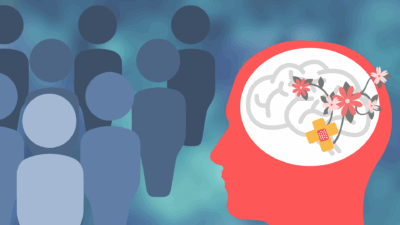
In today’s world, relationships offer joy, support, and deep connection, but they also pose challenges when it comes to maintaining your personal identity. Many people feel pressured to conform to their partner’s expectations or lose sight of their own passions while seeking togetherness. This article explores the delicate balance between love and individuality and offers essential strategies to nurture both your sense of self and your relationship. Through psychological insights and practical advice, you will learn how to thrive as an individual while enjoying a fulfilling partnership.
Understanding Identity in Relationships
Entering a relationship naturally brings a mix of vulnerability and excitement. Many individuals worry about losing their unique identity. In psychology, identity is a dynamic concept that evolves with experiences, relationships, and self-reflection. Understanding the dynamics of identity in relationships is the first step toward achieving balance.
Historically, literature and societal narratives have glamorized the idea of completely merging lives, often at the expense of individuality. However, modern research shows that preserving your personal identity not only enhances well-being but also enriches your partnership. When both individuals maintain their own interests and values, the relationship benefits from diverse perspectives.
This section delves into the psychological aspects of identity and examines how factors like social media or cultural expectations can influence our self-image within a relationship. It is crucial to challenge societal myths that equate commitment with the loss of self, and instead promote an environment where personal growth is celebrated alongside mutual love and support.
Key Concepts
- Identity is fluid and evolves over time.
- Debunking common myths about love and the merging of identities.
- The psychological benefits of maintaining individuality in relationships.
- Evidence-based insights into self-reflection and personal growth.
The Role of Self-Love and Boundaries

Self-love is the cornerstone of a healthy identity, and establishing clear boundaries is essential to maintain that sense of self in a relationship. Without boundaries, you risk prioritizing your partner’s needs over your own, which can erode self-respect.
Psychologists highlight that boundaries do not hinder intimacy; they create a framework for individual growth. When both partners set and respect these limits, the relationship flourishes based on mutual trust and appreciation. Nurturing self-love equips you to resist pressures to conform or lose yourself while pleasing your partner.
In this section, we discuss several strategies to nurture self-love and develop healthy boundaries. Techniques such as mindfulness, journaling, and reflective practices foster emotional clarity. Couples that communicate openly about their needs often experience higher levels of relationship satisfaction.
Embracing Self-Care Practices
Integrating daily self-care routines, including mindfulness exercises and physical activities, builds a strong habit of self-nurturing.
These routines enhance your inner strength and better equip you to manage relationship dynamics without feeling diminished.
Establishing Communication About Needs
Open dialogue about personal boundaries fosters mutual understanding and empathy between partners.
Expressing your needs constructively helps balance individual aspirations with shared commitments.
Strategies for Balancing Love and Personal Growth

Successful relationships require both shared experiences and individual growth. Every person brings unique strengths and passions into a partnership, and nurturing these qualities enriches the relationship. Investing in self-development while fostering love can have profound positive effects on your life.
A key strategy is to adopt a growth mindset, viewing challenges as opportunities for improvement. When setbacks or conflicts become catalysts for growth, couples can better navigate disagreements and deepen their mutual understanding.
Balancing love and identity means dedicating time for self-discovery as well as for shared activities. Integrating personal hobbies, professional aspirations, and creative pursuits with couple time can enhance both your individuality and your relationship satisfaction. Research indicates that couples who balance individual and shared interests report higher levels of fulfillment.
Practical Strategies
- Schedule regular ‘me time’ to engage in personal hobbies and interests.
- Participate in joint activities that allow room for individual expression.
- Utilize mindfulness to manage emotions during conflicts.
- Set both short-term and long-term goals that foster personal and shared growth.
Practical Tips for Maintaining Your Identity
Practicality is key when integrating the concepts of identity and love. In this section, we outline actionable tips to help you preserve your individuality while enjoying a fulfilling shared life. Each tip is supported by psychological research and real-life success stories.
One effective method is to continuously invest in your interests. Whether it’s pursuing a professional passion, learning a new skill, or engaging in creative endeavors, regularly participating in activities that define you fosters a strong sense of purpose. This also sets a positive example for your partner, demonstrating that personal fulfillment enhances rather than detracts from a loving relationship.

Maintaining balance in a relationship requires ongoing self-assessment and open communication. Accept that your identity may evolve over time and that phases of self-discovery are natural. By transforming potential conflicts into opportunities for growth, you cultivate a deeper connection with your partner.
Cultivating Personal Interests
Set aside dedicated time each week for hobbies and activities that excite and energize you, whether it’s art, sports, writing, or academic pursuits.
This commitment reinforces your identity and introduces fresh perspectives into your relationship.
Building a Network Beyond Your Relationship
Invest in friendships, professional networks, and community groups where you can exchange ideas and share experiences independently.
Such connections provide external support and reinforce the multifaceted aspects of your identity.
Content Additional
Beyond the core strategies discussed, there is additional depth to the subject of balancing love and identity. In today’s digital age, technology plays a profound role in shaping personal identity and relationships. Social media, for example, can connect people but also foster feelings of isolation. Understanding how to navigate digital trends while staying true to yourself is essential. Many experts advocate for digital detoxes and mindful tech usage to mitigate these effects.
Cultural factors also play a significant role. In multicultural relationships or communities with strong collective values, individual identity can sometimes be overshadowed by group norms. However, modern psychology emphasizes a balanced approach that honors both personal history and individual aspirations, enriching relationships without sacrificing uniqueness.
Additionally, professional guidance through therapy or counseling can be transformative. Studies from leading institutions such as the American Psychological Association show that individual and joint therapeutic sessions can improve communication, enhance conflict resolution, and clarify personal values. These strategies support the alignment of personal goals with relational harmony.

Emerging Trends and Research
- Increased awareness of mental health encourages open discussions about personal identity in relationships.
- Recent research highlights adaptive coping strategies, including mindfulness and cognitive behavioral techniques, to preserve individuality.
- Therapeutic interventions are evolving to address the challenges of balancing closeness with personal growth.
- Integrating neuroscience with psychology offers new insights into how our brains manage love and individuality simultaneously.
In conclusion, nurturing your identity while embracing love is not only possible but essential for a healthy relationship. Self-love, clear boundaries, and personal growth empower you to offer your most authentic self to your partner. Remember, a vibrant relationship is built on the foundation of two whole individuals rather than two halves trying to merge. Embrace your uniqueness and let it shine both personally and in your relationships. With these practical tips and mindset shifts, you can overcome self-doubt, establish a resilient sense of identity, and enjoy a balanced, loving relationship that supports mutual growth and well-being.




